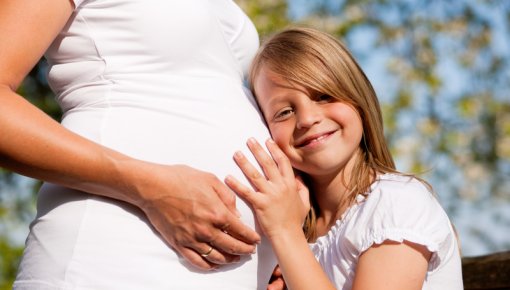The average length of a pregnancy is 40 weeks, so just over nine months. The weeks of a pregnancy are counted starting on the first day of your last period.
In early pregnancy, the physical changes are hardly noticeable. Skin may appear rosy because of increased circulation of blood. But most pregnant women notice that their body is changing: Many of them feel tired faster, their appetite changes, their breasts feel tender, and they may feel nauseous, especially in the morning (“morning sickness”).
Hormonal changes often influence a woman’s emotions, particularly in the first three months of pregnancy. Women might react more sensitively than they otherwise would, and and their mood can change more frequently. It is not always easy to adjust to the new challenges that lie ahead – especially if the pregnancy wasn't planned.
The second third (typically called a “trimester”) of pregnancy is often the most pleasant for women. Their body has now completely adjusted to the pregnancy, but the size of their belly and their body weight are still not too much of a problem in everyday life. Most women start feeling emotionally balanced again, and some develop a special energy and feel good in their body. At this point the child’s movements are usually quite noticeable.
During the final trimester, the child matures quickly, and gets bigger and heavier. About four weeks before birth it usually turns so that its head is pointing down into a birthing position. Towards the end of the pregnancy, most women have problems associated with their growing belly, and everyday tasks gradually become more difficult. In the last few weeks, the focus of pregnancy shifts to the upcoming birth – women may start feeling more excited about, but also more daunted by, what is about to happen. Contractions are a sign that the birth is drawing closer.

